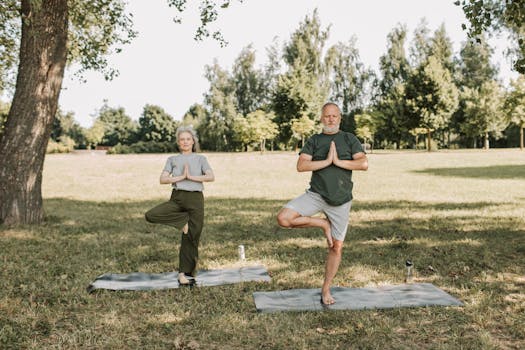
“
Regular Exercise for Better Mental Health
Regular exercise is a crucial aspect of maintaining good mental health. Exercise has been shown to have a positive impact on mental health by reducing stress, anxiety, and depression. In this article, we will discuss the benefits of regular exercise on mental health and provide tips on how to incorporate physical activity into your daily routine.
Benefits of Regular Exercise on Mental Health

Regular exercise has numerous benefits for mental health, including:
- Reducing stress and anxiety: Exercise has been shown to reduce stress and anxiety by releasing endorphins, also known as feel-good hormones.
- Improving mood: Regular exercise can improve your mood by increasing the production of neurotransmitters such as serotonin and dopamine.
- Enhancing sleep: Exercise can help improve sleep quality, which is essential for good mental health.
- Boosting self-esteem: Regular exercise can boost your self-esteem and confidence, which can have a positive impact on mental health.
- Reducing symptoms of depression: Exercise has been shown to reduce symptoms of depression, including improved mood and reduced anxiety.
How Exercise Affects Mental Health

Exercise affects mental health in several ways, including:
- Releasing endorphins: Exercise releases endorphins, which are natural painkillers that can improve your mood and reduce stress.
- Improving brain function: Exercise has been shown to improve brain function, including improved concentration and memory.
- Reducing inflammation: Exercise has anti-inflammatory properties, which can reduce inflammation in the brain and improve mental health.
- Improving sleep: Exercise can help improve sleep quality, which is essential for good mental health.
Incorporating Physical Activity into Your Daily Routine

Incorporating physical activity into your daily routine can be simple and fun. Here are some tips to get you started:
- Start small: Begin with short periods of physical activity, such as 10-15 minutes per day, and gradually increase the duration and intensity.
- Find an activity you enjoy: Engage in physical activities that you enjoy, such as walking, running, swimming, or dancing.
- Make it a habit: Incorporate physical activity into your daily routine, such as first thing in the morning or right after work.
- Get a workout buddy: Exercise with a friend or family member to make it more enjoyable and help you stay motivated.
- Track your progress: Use a fitness tracker or journal to track your progress and stay motivated.
Conclusion

In conclusion, regular exercise is essential for maintaining good mental health. By incorporating physical activity into your daily routine, you can reduce stress, anxiety, and depression, and improve your overall well-being. Remember to start small, find an activity you enjoy, and make it a habit. With regular exercise, you can take the first step towards better mental health. For more on creating a relaxing atmosphere, check out our article on Enchanting Floral Vibe. If you’re interested in exploring self-care strategies, consider reading about A Journey Through a Forgotten Forest. Also, don’t miss our insights on Breakthroughs in Renewable Energy Technology for a broader perspective on well-being.
See more:
https://www.mayoclinic.org/healthy-lifestyle/fitness/expert-answers/exercise-and-mental-health/faq-20419353
https://www.apa.org/topics/exercise-fitness/mental-benefits
https://www.healthline.com/nutrition/exercise-and-mental-health


